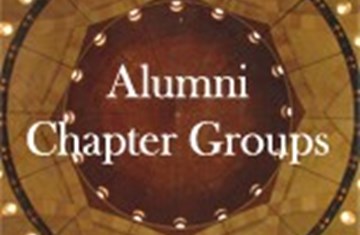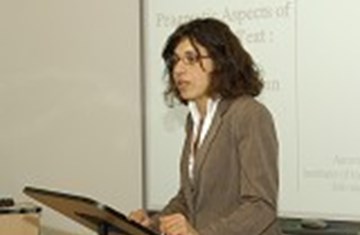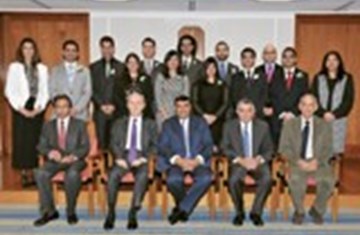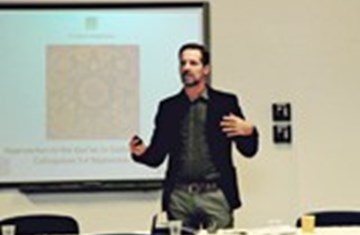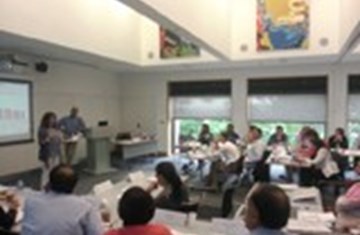IIS Alumni Explore the Significance of Qur’anic Teachings in Contemporary Times
Over sixty alumni from Hong Kong, India, Kenya, Pakistan, Singapore, Syria, Tajikistan and Tanzania convened in Kuala Lumpur, Malaysia for the annual meeting of the Asian Chapter Group of the Alumni Association. The theme for the meeting was The Significance of Qur’anic Teachings in the 21st Century.
The meeting commenced with an address by the Chapter President, Minaz Master (GPISH 2002), and Chapter Secretary, Karima Merchant (STEP 2011), who introduced the theme and objectives of the meeting. This was followed by a presentation from Dr Arif Jamal (GPISH 1997) on Qur’an and Shari'a: Is Islamic law divinely inspired? Dr Jamal discussed the nature of Islamic law, the extent to which it is divinely inspired and the complexities associated with the implementation and practice of Islamic law in the 21st century.
The Far East Ismaili Community leadership was invited to address the alumni. Vice President Jamal Surani, gave a presentation on the key milestones and history of the community, while the Chairperson of the Ismaili Tariqah and Religious Education Board (ITREB), Scherezade Saleh, spoke on the demographics of the community in their jurisdiction.
Professor Bruce Lawrence of Duke University gave two sessions to the alumni entitled Lost in Translation? Influence of Translation on the Understanding of Qur’anic Teachings amongst Muslims and non-Muslims and Fundamentalism and Violence: How have Qur’anic teachings been used to justify certain attitudes in the 21st century? respectively.
Professor Lawrence adopted a syntactic and aesthetic approach to address the topic related to Qur’anic translations. He took the audience through a journey of his life experiences and interactions with people who have translated the Qur’an. Professor Lawrence chose a few verses in order to share various stylistic translations of those verses, both published and unpublished. In so doing, he expressed how diverse translations can impact readers differently.
For the second topic, Fundamentalism and Violence, he proposed that in the early years, Islam was not a catalyst for violence; rather violence was a response to injustice, social inequity, infanticide and other such social ills. It was only later that jihad became a strategy for maintaining internal order and combating external enemies. He then went on to discuss 9/11 and terrorism, linking them to European colonial history in Africa and Asia as well as independence movements after WWII.
Professor Abdullah Saeed of the University of Melbourne gave a presentation on Text and Context: Reading and Interpreting the Qur’an in the 21st century. Using a few verses of the Qur’an to illustrate his point, he emphasised the importance of socio-historical context in understanding the Qur’an and the dangers associated with taking the verses out of context.
Professor Saeed discussed the need for a new framework, not completely divorced from tradition in keeping with social justice objectives. The academic sessions closed with a panel discussion with Professor Bruce Lawrence and Professor Abdullah Saeed, moderated by Shiraz Kabani Head of Community Relations, IIS.
On the last day, Shiraz Kabani gave a presentation to the alumni entitled Recent Developments at the IIS and the role of the Alumni. The day continued with showcases on Socio/Ethical Entrepreneurship, work on the Norwegian-Afghanistan Community, the IB curriculum taught at the Aga Khan Academy, the introduction of volunteer services in Syria, and work undertaken by IIS alumni in various projects of the United Nations
In addition to the intellectual stimulation, alumni were culturally inspired through a visit to the Islamic Art Museum which was hosting the Treasures of the Aga Khan Museum: Architecture in Islamic Arts special exhibition. Dr Heba Barakat, Head Curator, briefed alumni on the collection.
After a tour of Kuala Lumpur, the annual ACG meeting ended with more cultural flavour at Madame Kwans, where the alumni indulged in local cuisine with the Far East Leadership giving them the opportunity to interact with the leadership, in an informal setting.
Related Pages on the IIS Website:
- News Story: IIS Publishes The Spirit of Tolerance in Islam
-
Quranic Studies Workshop: Cultural Responses to the Qur’an

